Aerith's fate in Final Fantasy 7 Rebirth and the trouble with remakes
Spoilers!
This piece contains major spoilers for the original Final Fantasy 7 and Final Fantasy 7 Rebirth. Please do not read unless you've finished Rebirth.
It's hard to overstate how iconic Aerith's death was in the original Final Fantasy 7. She may not have been the first main character to die in the series, but due to the immense popularity of the game on its release, her death certainly had the biggest impact. Its ripples continue in Final Fantasy 7 Rebirth, the recently released second part of the remake trilogy.
But why was her death so memorable? It's a shocking moment, simply told. Shocking because a key character players have grown to love is stripped away; simple because it's shown with stark clarity, the music halts like an in-take of breath until she slumps and sombre piano plays. It's quietly dramatic and the image of Sephiroth's almost comically long sword piercing her chest is unmissable. Then, moments later, we're snowboarding down a mountain, as is the FF7 way.
A remake of this moment poses a conundrum. How do you recreate it to the same level of shock value? It's impossible, and Square Enix knows it. Lightning doesn't strike twice. If we know it's coming, Aerith's death is already devoid of impact.
So, in the spirit of maintaining the shock of the original, the developers' big twist is to create a multiverse to keep us guessing. It serves multiple purposes: it provides a structure to step back and incorporate elements from across various spin-offs; it gives a narrative get-out for Aerith's fate to keep us guessing; and it allows for comment on the very nature of what a remake can be, twisting the familiar into something fresh.
Rebirth is, on one level then, a game about games - a self-referential experience about its own existence. Yet in doing so, Square Enix has risked alienating new and old fans alike.
This meta-narrative commentary running throughout Rebirth only fully works with prior knowledge of the original. So it's laughable, really, for Square Enix to repeatedly insist the remake trilogy is welcome for newcomers. It's not! FF7 is already a tangled web of storylines across multiple spin-offs that competes with Kingdom Hearts in the wtf stakes. Rather than simply retell the original, Rebirth folds in elements of Crisis Core, Ever Crisis, The First Soldier, and Dirge of Cerberus, with possible threads to film sequel Advent Children. Rather than the remake trilogy offering a definitive experience encompassing those storylines into a singular package, it assumes prior knowledge and takes things a step further into a multiverse. Maybe a step too far.
As a fan of the series, I can appreciate the desire to fold in elements from outside the original. I can also appreciate the meta-narrative commentary as a clever self-referential twist: in short, Remake sees the characters cheat fate in-game to forge a new destiny, just as the developers hint to possible changes a remake could bring. This idea ultimately falls flat as the core plot of Rebirth barely deviates from the original. Rather than fully commit to change, it straddles the line between old and new before awkwardly offering a bizarre ending that poses more questions than it answers.
.jpg?width=690&quality=75&format=jpg&auto=webp)
The real sticking point, though, is Aerith's death. It's no longer the shocking, simple moment of the original, but a baffling climax to a convoluted guessing-game of a story obsessed with the very notion of her dying. Before the game was even released Square Enix was desperate for her fate not to leak; then the game's opening mirrors her death in the original, toying with us from the very beginning.
When The Big Moment finally does arrive, we see Aerith killed but also saved; dead but also alive. It's a shifting quagmire of multiple worlds, timelines, and interpretations that robs the moment of emotional value. Forget Sephiroth, ambiguity is the real killer in Rebirth.
I can understand the desire to keep players guessing. After all, how many players gave up on Aerith in replays of the original to not waste time on her before her demise? I know I'm guilty of that. I also applaud Square Enix for trying something new with its multiverse storyline, even where a straight single-game remake of the original would have easily sufficed - and likely sold well. What's more, I've no doubt Aerith will continue to play an important role in Reunion or whatever the third game ends up being called. Perhaps she'll even receive a proper death in some sort of sacrificial final moment.
Yet for Rebirth, the result of all this convolution is a schmaltzy, saccharine conclusion to an otherwise exceptional game that undermines the wonderful character work leading up to this point. Rebirth excels in its individual character episodes, but the overarching narrative and ending evangelise Aerith, elevating her above the others. The game is an ensemble piece, but it all hinges on her fate.
_png_jpgcopy.png?width=690&quality=75&format=jpg&auto=webp)
Furthermore, I can't help but feel cynical about the developers spending the bulk of Rebirth manipulating and confounding our expectations. Why? To buy into the very nature of a remake in the first place, but also to very literally buy three games. Aerith's death in the original has clear story implications: it's necessary to prove Sephiroth's malice. In Rebirth it's less clear and seems to occur here only because it has to in order to mirror the original. Here Aerith's death is only significant in its relation to the original game. Adding ambiguity to that feels more like a business decision than a narrative one.
I honestly love Final Fantasy 7 Rebirth, as I explained in detail in my review. I toyed with that piece and its score, but ultimately decided the game's end didn't ruin the experience. I love its playfulness, its warmth and tenderness, its deep characterisation, its stupendous card game. As a remake of a beloved classic, it offers fans a chance to experience the familiar anew. That, really, is the raison d'être of a remake and an astounding achievement beyond others that settle for a lick of paint.
Yet playing with Aerith's fate underlines an issue at the core of remakes, and the very issue Rebirth's meta-narrative reflects: how can retelling a familiar story still prove surprising? By leaning too far into convolution, Rebirth ultimately leaves us with question marks instead of tears.
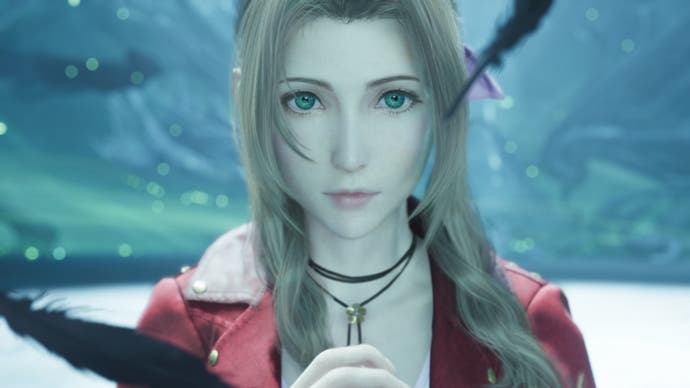

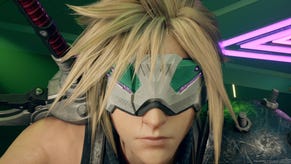

.png?width=291&height=164&fit=crop&quality=80&format=jpg&auto=webp)
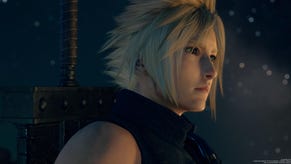

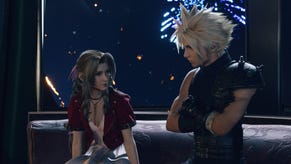

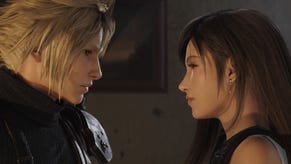
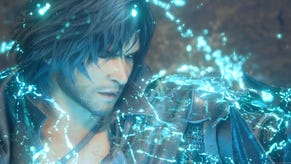
-3-31-23-screenshot.png?width=291&height=164&fit=crop&quality=80&format=jpg&auto=webp)





